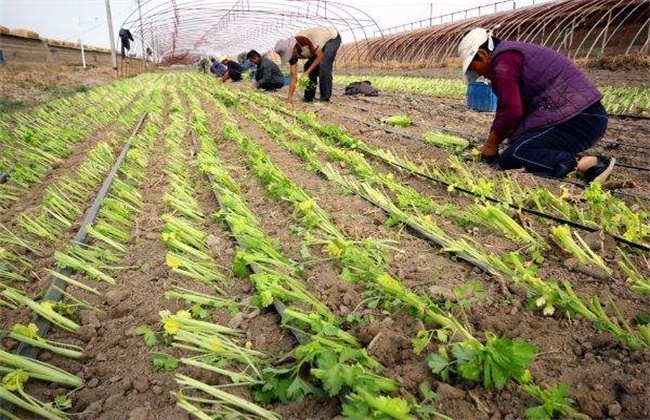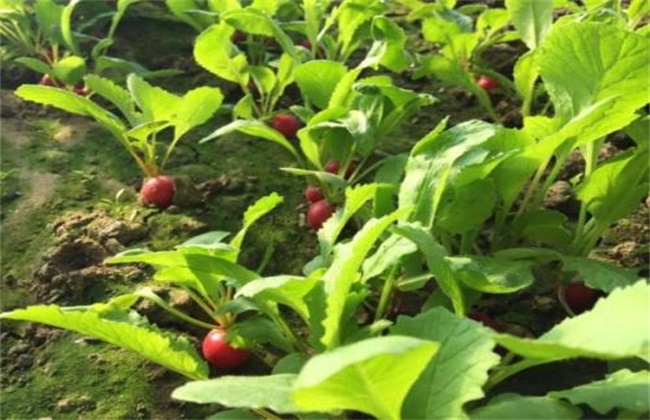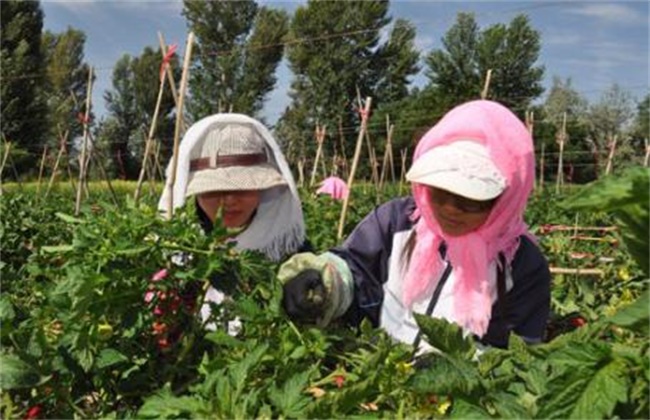Management techniques of celery after planting
Celery likes cold and humid climate, it is now a good season for celery planting, and it is about to come to the planting period of deworming, but if you want to grow high-quality and high-yield celery, what should you pay attention to when transplanting, and how should it be managed after planting? Come and have a look with the editor.

1. Colonization
Before planting, the seedling bed should be watered thoroughly, and then the root should be dug out with soil, and when taking the seedling, the main root should be shoveled off at about 4 cm, which can promote the germination of a large number of lateral roots and fibrous roots of green vegetables. Celery transplanting should be classified in size and planted separately to make the seedlings grow neatly so that they can be managed and harvested. The planting depth is appropriate to bury the roots of the seedlings. Too deep planting can easily cause the heart leaves to be buried in the mud and cause dead seedlings. The resulting row spacing is generally 12-15 cm, 2-3 pigs per hole, or a single plant, with a row spacing of about 10 cm.
2. Watering and fertilizing
After watering enough planting water, it entered the late stage of planting, when it was generally watered once every 4-5 days, and the slow period avoided high temperature and drought or stagnant water in the border to avoid rotting roots and dying seedlings. After slow seedling, flood irrigation should be controlled to keep the soil wet and dry and promote root growth. About 20 days after planting, the chickens were ploughed and weeded, and squatted seedlings properly. It makes the roots go down, accelerate the differentiation of heart leaves and inhibit the excessive growth of petioles. Squatting seedlings should be combined with watering and fertilizing once a week, when the temperature is suitable, topdressing can make celery grow quickly.
3. Buckle the shed
In mid-late October, you can begin to buckle the shed, when the temperature in many places begins to drop, and the lowest temperature in some areas reaches 2-5 degrees, and celery grows slowly, so it is necessary to buckle the shed to keep warm and promote growth. When buckling the shed, if you want to choose the weather with no wind or little wind, trim the skeleton of the greenhouse, it is not suitable to water the greenhouse 3 days before the buckle shed, lest the buckle shed is wet and stick to your feet, causing difficulties in work, you should spray an anti-pest agent before buckling the shed, because it is inconvenient to spray after buckling the shed. When the temperature is below 0 degrees, cover the grass grass, roll it up during the day to increase the light and temperature, and put down the heat preservation at night.
4. Ventilation
Pay attention to the windbreak after buckling the shed, especially in mid-late October when the temperature is high and the light is strong, when the noon temperature can be as high as 30 degrees, so pay attention to ventilation. Reduce the temperature of the greenhouse below 20 degrees and the humidity to 80%, because the high temperature and humidity environment can easily lead to the overgrowth of celery, weakening the ability of disease resistance and cold resistance, which will seriously affect the yield. When the temperature drops in December, you should pay attention to anti-freezing, the minimum at night should not be less than 6 degrees, and you can be properly ventilated during the day.
The above is the introduction of management technology after celery planting. I hope it can help you. If you want to know more about it, please follow us.
Related
- Where is it suitable to grow horseradish in China? it is expected to see the middle altitude horseradish in Alishan.
- How to prevent tomato virus disease reasonably? (Control methods included)
- Many people like to plant towel gourd on the balcony. What are the main points of this method and management?
- What crops can chili peppers be mixed with?
- Fertilization techniques and matters needing attention in Tomato
- What are the grafting techniques for peach seedlings in spring?
- Harm and control methods of root swelling disease of Chinese cabbage
- What are the pests of sweet potatoes? How to prevent and cure it?
- Symptoms, causes and Control methods of navel Rot in Tomato
- The cause of "Cucumber rotten bibcock" in Farmers' planting Cucumber and its Control Plan



